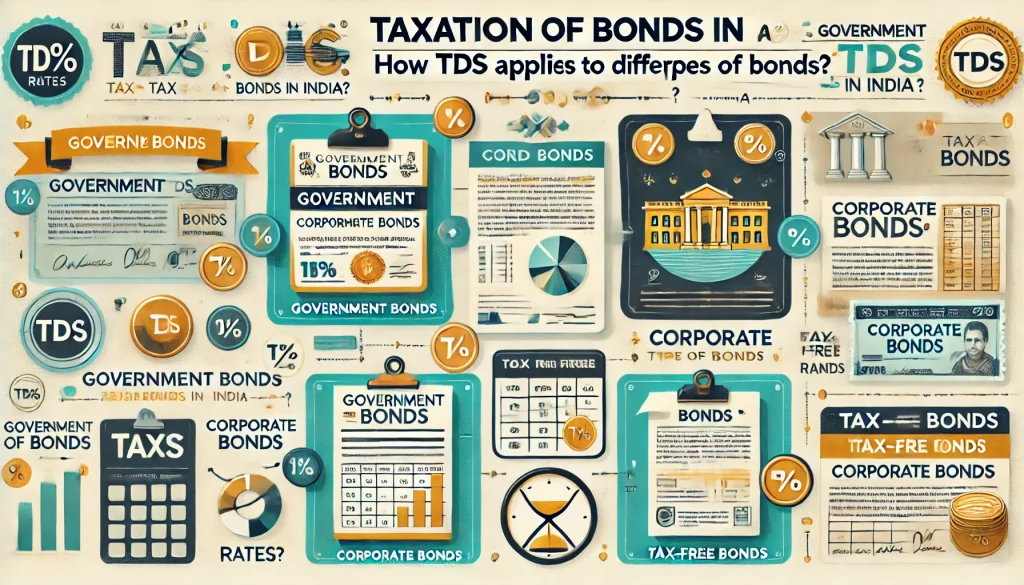
There are various coupon bonds available in India that provides interests or coupons at regular intervals. However, a zero coupon bond is a type of bond that does not offers any coupons to its customers. Investing in such bonds can help you in the long run. In this article, you will learn in detail about zero coupon bonds, their price calculation process, their features, advantages, disadvantages, and more.
What is a Zero Coupon Bond?
A zero coupon bond is a type of debt security instrument that does not pay any coupon or interest to the bondholder. Also known as discount bonds, these bonds are purchased at a discounted price. You will receive the principal amount along with the profit or losses at the end of maturity.
Zero coupon bonds are issued by different financial institutions, municipalities, federal agencies, and corporations. Though these bonds do not provide periodic interests and are less competitive, they are good in a long-term perspective like savings for your child’s education. A Treasury bill or T-bill issued by RBI is a zero coupon bond example.
How is the Price of Zero Coupon Bond Calculated?
You need to use the following formula to calculate a zero coupon bond price:
Current price of zero coupon bond = M/((1+r)^n)
Here,
- M = Maturity value or face value
- r = Interest rate
- n = Number of years until maturity
Suppose you are an investor who wants to invest ₹5000 and is expecting a return of 10% from the bond. This bond has a maturity of 10 years.
The price of the zero coupon bond which you have to pay = 5000 /( (1+0.10)^10) = ₹1927.71
Features of Zero Coupon Bond
The following are some important features of zero coupon bonds:
- Fixed Maturity: These bonds have a fixed maturity date, which means that investors will only receive the full face value when the specified maturity date arrives. This characteristic makes them a valuable tool for long-term investments.
- No Interest Payments: Zero coupon bonds do not provide regular interest payments to investors. Instead, they are initially sold at a discounted price and redeemed at their full face value upon maturity.
- Interest Rate Risk: Like most bonds, a 0-coupon bond is subject to fluctuations in interest rates based on market conditions. This holds true for tax-free bonds as well.
- Long-term Investment: Zero coupon bonds are considered long-term investment options due to their fixed maturity date.
Top 5 Zero Coupon Bonds in India
Here is a list of the top 5 zero coupon bonds in India sorted as per their yield:
| Bond Name | Rating | Yield Rate |
| Aditya Birla Finance Limited | AAA | 7.85% |
| Andhra Pradesh Expressway Limited | AAA | 8.50% |
| IIFL Home Finance Ltd | AA+ | 10.28% |
| Edelweiss Financial Services Limited | AA | 10.5% |
| IIFL Finance | AA | 11.5% |
Note: The yield rate of these zero coupon bonds is subject to change.
Advantages of Zero Coupon Bond
Here are the advantages of investing in a zero coupon bond before making the investment. These advantages are as follows:
- Elimination of Reinvestment Risk: With other coupon bonds, it can be challenging for investors to reinvest cash flows at the same rate as their required rate of return. However, zero coupon bonds eliminate this reinvestment risk since they don’t offer periodic coupon payments, ensuring a fixed return throughout.
- Assurance of Fixed Returns: These bonds are an excellent choice for those who prefer long-term investments with the promise of a fixed return as long as the investment is held until maturity.
- Long-Term Investment Horizon: Zero Coupon bonds are advantageous for long-term investors due to their extended investment horizon. They offer a fixed return over the long term without the need to be concerned about market fluctuations.
Disadvantages of Zero Coupon Bond
The following are the disadvantages of a zero coupon bond:
- Interest Rate Risk: The interest rates associated with this bond can decrease over time due to market fluctuations. This means that investors will always face interest rate risk if they sell the bond before its maturity date.
- Delayed Income: This coupon bond provides a lump-sum payment after it matures, making it unsuitable for investors seeking regular cash flow. If you need consistent income, this bond may not be the best choice.
- Duration Risk: Duration risk is connected to how sensitive a bond’s price is to a 1% change in interest rate. The longer the duration, the more susceptible the bond becomes to interest rate fluctuations.
Who Should Invest in Zero Coupon Bonds?
A zero coupon bond is ideal for you if you need funds in future like for a planned tour, your child’s education or retirement plan. Furthermore, if you are someone who finds it difficult to understand the market trends and wants to invest in a bond that does not require any strategies then you can invest in these bonds. Lastly, if you want to add diversity to your investment portfolio then these bonds can help you get a guaranteed return for a fixed time period.
How to Buy Zero Coupon Bonds in India?
You can buy zero-coupon bonds in India through two markets: the primary and secondary markets. Here are the steps you should follow:
- Step 1: Open a Demat Account.
- Step 2: Determine which issuer’s zero coupon bonds you want to buy. Make this decision based on the issuer’s credit rating and financial information.
- Step 3: After selecting your issuer, verify the issue details, including the coupon rate, face value, and maturity date.
- Step 4: You can place an order to purchase zero coupon bonds through a broker like a Depository Participant (DP). Depending on your preferred payment method you can purchase these bonds in both online and offline mode.
- Step 5: Pay for the bonds through your Demat account. Payment options may include methods such as Cheque payments, net banking, and NEFT/RTGS transfers.
After the payment is made, the zero coupon bonds will be reflected in your demat account. The settlement process will follow the exchange’s settlement cycle.
Zero Coupon Bond vs Regular Bond
The following table highlights the difference between zero coupon and regular bonds:
| Parameters | Zero Coupon Bonds | Regular Bonds |
| Price | At a discount on the face value of the bond | Close to the face value or at par with the bond |
| Interest | No cash interest payments | Regular interest payments |
| Sensitivity | More sensitive to both interest rates and inflation-related risks | Less sensitive to both interest rates and inflation-related risks |
| Yield at maturity | Determined by the purchase discount and the time to maturity | Determined by the time to maturity, the coupon rate, and the market price |
| Income generation | Do not generate income until maturity | Regular income generation from coupon payments throughout the bond’s life |
| Taxation | Only capital gains are taxed | Capital gains and interest payments are taxed |
| After maturity | Principal along with profit is returned | Only the principal is returned |
| Volatility | Highly volatile | Low volatility |
Thus, a zero coupon bond is perfect for those who have long-term investment objectives and looking for a diversified investment portfolio. Furthermore, you can get expert guidance to understand the workings of zero coupon bonds in a better way. This can help you to make informed decisions and achieve your financial goals better.
FAQs
Zero coupon bonds are safe compared to fixed-income securities as there are no interest payments involved in this bond. They are free from interest rate risk. This is provided you are not selling this bond in the secondary market.
Suppose the purchase price of a zero coupon bond is ₹100 and the value of the bond after its maturity is ₹105. Then the return is ₹105 – ₹100 = ₹5 on a one-year bond.
You do not have to pay a tax on interest of zero coupon bonds since they are issued at a discounted price and redeemed at face value. The tax is only levied on the capital gains.
A zero coupon bond has a maturity period of 10 to 15 years and can be extended if you want.
Yes, NRIs are eligible to invest in zero coupon bonds issued by the government or Public Sector Undertakings (PSUs). However, they are not eligible to invest in zero coupon bonds issued by private-sector companies.


